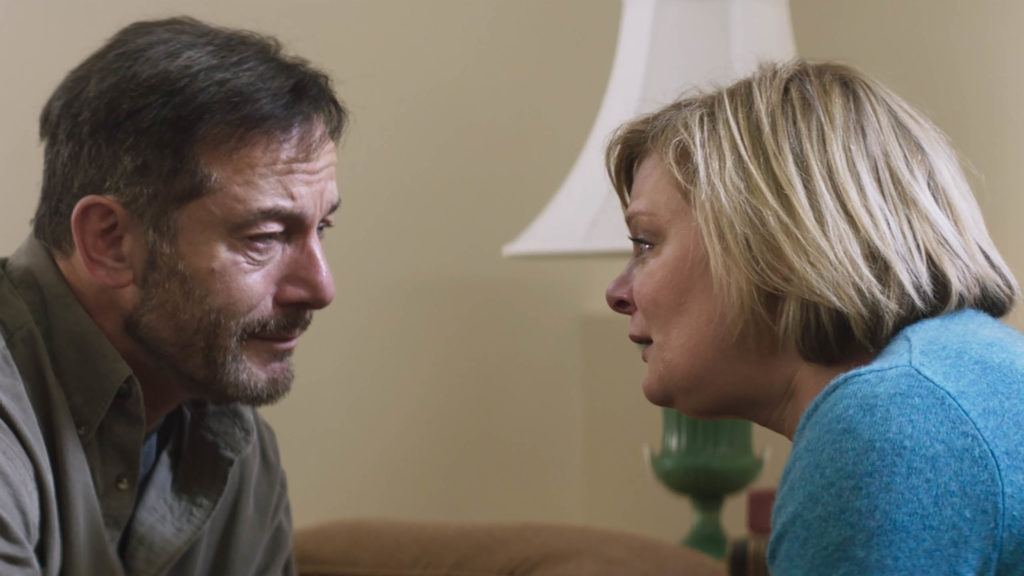Mass

Jason Isaacs and Martha Plimpton in Fran Kranz's MASS. Image courtesy Sundance Institute.
Given the recent insurrection at the U.S. Capitol, and much of the inflammatory rhetoric from far right legislators in the aftermath of events, a film like MASS—centered around the grieving process of two families on opposite sides of a school shooting—seems like it ought to tread carefully. Our own wounds still fresh, and news of Marjorie Taylor Greene ridiculing David Hogg, one of the Parkland shooting survivors, writer/director Fran Kranz’s MASS tries, and mostly succeeds, to tackle one of the most sensitive subjects we can discuss in America.
In a church basement, Gail (Martha Plimpton) and Jay (Jason Isaacs) meet with Richard (Reed Birney) and Linda (Ann Dowd), trying to find closure around the death of their sons—respectively Evan, a victim, and Stephen, the shooter. Through the process the families go back and forth through the Kübler-Ross stages of grief. Jay in particular attempts to deconstruct Stephen’s psychopathy, as though there’s a clear series of events that, if interrupted, could have prevented Evan’s death.
There are moments when the story teeters into explainology, but in these instances they serve Jay’s desire to find some rational cause-effect relationship onto which he can anchor his feelings of anger and sorrow. And it gives the actors an opportunity to play off one another. Ultimately, they begin to understand and accept the things beyond their control. Richard concedes of his son, “I thought he confided in me. Now I know that some of the things he told me were purposely deceitful.”
Dowd especially delivers a knockout performance as Gail, punctuated by a late confession of soul-crushing guilt. The moment is devastating, but weirdly interrupted by a reintroduction of two church volunteers from the opening scene who seem attached to some other subplot that was discarded entirely.
The core dialogue between the two families is beautifully acted, but it’s beset by superfluous bookends of the church volunteers and thirty minutes of expository setup that intends to slowly reveal the nature of the tragedy. Not only are both unnecessary, but they lend themselves to the film’s most stilted dialogue. It’s jarring mostly because the four principals’ interactions are so visceral. If the first act had to be setup at all, it would have flowed freely and meaningfully had it invested some backstory into the two families before the tragedy rather than a concerted effort to say everything but the secret word.
The film also falters in placing all the emphasis on unpacking Stephen’s mental health but not his potential online radicalization. We’re told he made friends who harbored similar resentments for being bullied, but the film suggests Stephen acted alone and wasn’t invited down a rabbit hole of so-called Red Pillers—contrary to the profiles of numerous mass shooters over the past several years.
If the intent is healing, it cannot be achieved by dancing around the subject simply for dramatic effect. It is to the filmmaker’s credit, however, that he’s somehow given the characters a stone that even he can’t lift.